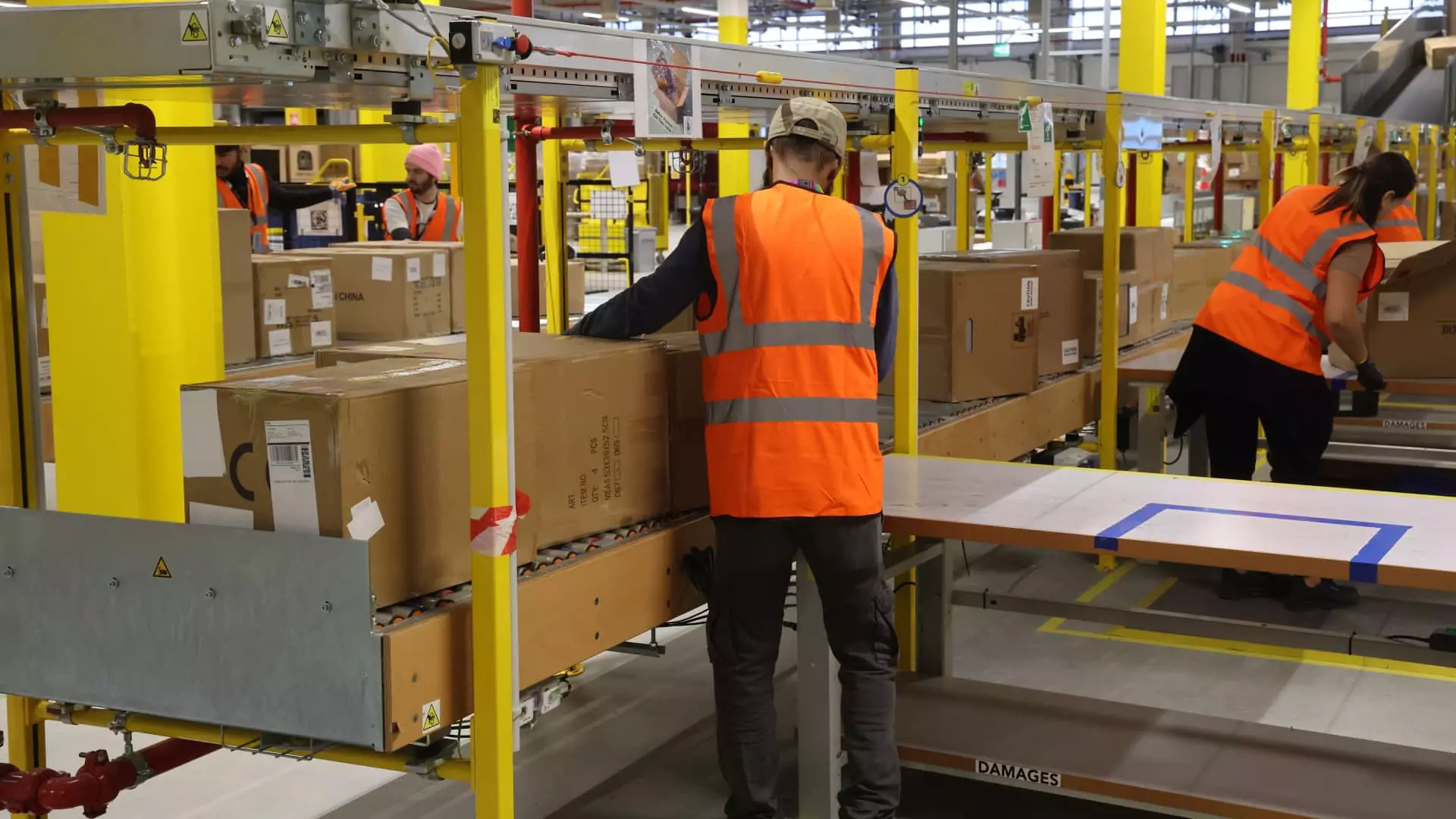In an era riddled with headlines about revolutionary technological advancements, Amazon’s announcement of reaching its millionth worker robot underscores a relentless pursuit of efficiency. Yet, beneath the surface of this shiny milestone lies a troubling narrative about the future of work and human dignity. While automation can undoubtedly enhance productivity, it risks eroding the very fabric of employment—an essential pillar of social stability. The glorification of robots as champions of progress neglects the profound human costs; it’s a distraction from the fundamental question: at what price does technological advancement come?
The allure of smarter, faster robots isn’t merely about improved logistics or cost reductions; it’s about a societal shift that treats human labor as a secondary consideration. The claim that these robots “work alongside employees” masks an oversimplified view that automation necessarily complements human effort. In reality, every robotic upgrade often translates into job displacement, diminished career prospects, and an increase in economic inequality. The narrative champions innovation while ignoring the human toll—an act of technological hubris that paints progress as an unqualified good, ignoring its darker side.
The Persistent Myth of Job Creation Versus the Reality of Job Loss
Proponents argue that advancements like Amazon’s “DeepFleet” AI will create new opportunities—more technical roles and maintenance jobs, as Dresser claims. But experience suggests otherwise: for every new specialized position, many more workers face the threat of redundancy. The sweeping layoffs in the tech sector, which have already seen hundreds of thousands lose their livelihoods, expose the fragile justification that markets will compensate for displaced workers through new employment avenues. This assumption is dangerously optimistic and dismisses the reality that not everyone can—and will—transition seamlessly into new technological roles.
The recent trend of layoffs—compounded by automation—reflects a reckless prioritization of shareholder profits over worker stability. Amazon’s own admission that its workforce could decline due to AI-driven automation exposes an uncomfortable truth: automation isn’t just replacing manual tasks but also steadily shrinking the number of jobs available. This fundamental shift fosters economic precarity, deepening inequality in a society that desperately needs stability and fairness. The notion that technological progress inherently benefits society disregards the human suffering intertwined with these transformations.
Ethics of Automation: A Question of Humanity
The adoption of AI-powered humanoid robots and autonomous systems paints an optimistic picture of a future where humans are free from repetitive, physically demanding tasks. But this vision is fundamentally flawed if it neglects the societal and ethical implications. Are we comfortable relinquishing control and independence to machines that sometimes operate in unpredictability? More critically, are we sacrificing our humanity for efficiency at the expense of empathy, community, and social cohesion?
In many ways, the relentless push for automation mirrors a deeper systemic issue: a market-driven obsession with growth at any human cost. The narrative of “robots working alongside” employees feels like a sanitized version of a harsher reality—robots replacing the flesh-and-blood workers who built industries with sweat and ingenuity. Companies celebrate technological milestones, but seldom confront the moral questions: Do we value human labor as a fundamental part of our society, or are we sliding towards a future where human worth is measured solely by how efficiently they can be replaced?
A Call for Balanced Progress
The liberal center must advocate for a more reflective approach to technological innovation—one that recognizes the importance of human employment, community resilience, and social responsibility. It’s not enough to celebrate milestones of automation without scrutinizing their broader implications. True progress involves safeguarding the dignity of workers, ensuring that technological advancements serve society as a whole, and not just the interests of corporate shareholders.
We must demand policies that mitigate the adverse effects of automation: robust retraining programs, job guarantees, and regulations that prioritize human well-being. Without these safeguards, the frenzy of robotic expansion risks creating a future where technological progress worsens societal divides rather than bridging them. Progress must be inclusive, humane, and aligned with the core values of a society that cherishes human dignity above mere productivity. Only then can innovation truly be a force for good.


Leave a Reply